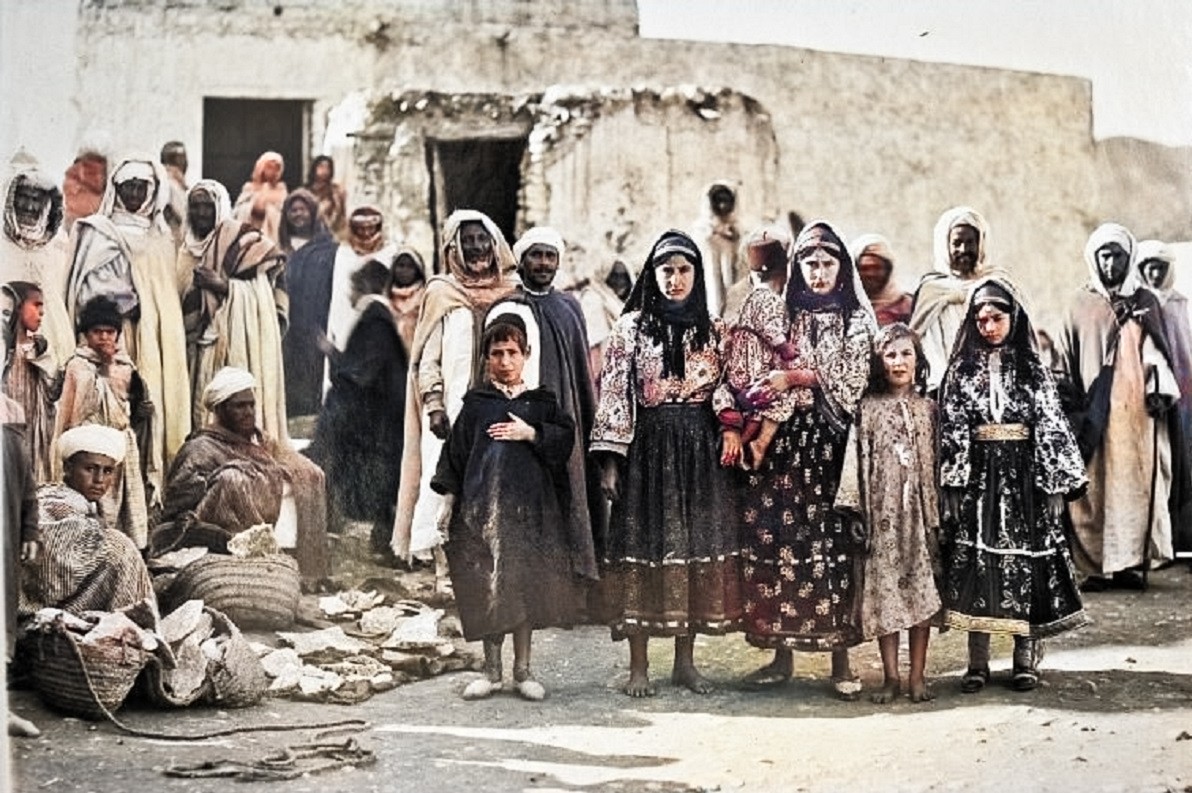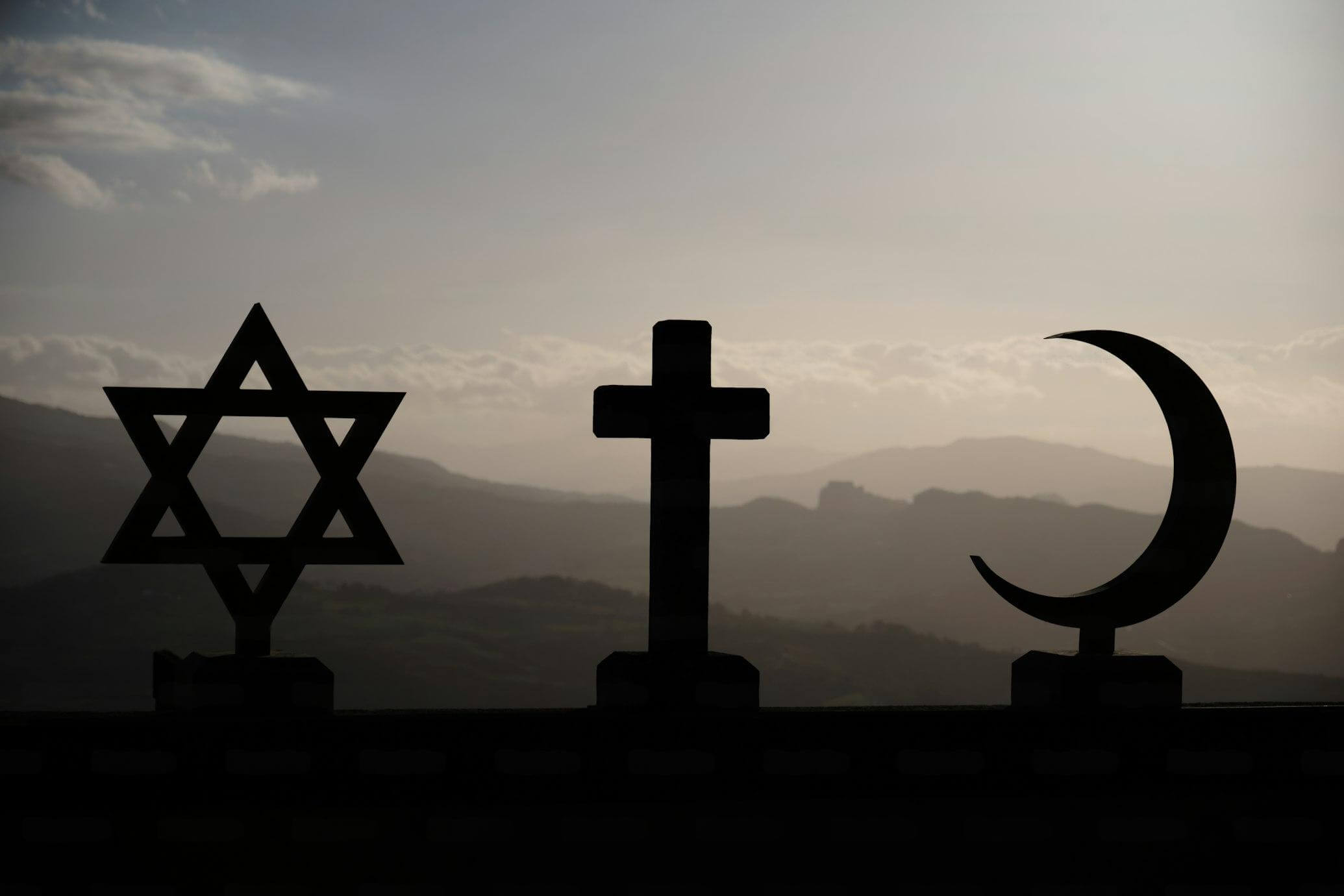Exploring the Heritage of Moroccan Jews
This podcast delves into the rich history of Moroccan Jewry, exploring their origins, the impact of historical events, and their coexistence with Muslim communities. It discusses the current status of Jews in Morocco, their cultural practices, and the challenges they face. Additionally, it examines the migration of Moroccan Jews to Israel, their contributions to Israeli society, and efforts to preserve their cultural heritage.
Exploring the Heritage of Moroccan Jews: The Jews of Morocco Today
Moroccan Jews have a rich and intricate history that reflects the broader tapestry of Jewish communities in the Maghreb and beyond. The heritage of Jews in Morocco is not only a testament to their longstanding presence in the region but also an essential part of the Jewish world. Today, many Moroccan Jews are part of the Jewish diaspora, with significant populations in the State of Israel and elsewhere. This article delves into the historical context of Moroccan Jews, their origins, the impact of various historical events, and their coexistence with Muslim communities, highlighting the unique cultural and religious contributions of Moroccan Jewry.
The Historical Context of Moroccan Jews
Origins and Early Settlement in Morocco
The origins of Moroccan Jews can be traced back to ancient times when Jewish families settled in the region, contributing to the rich cultural landscape of what is now Morocco. Early Jewish presence in Morocco is believed to date back to the Roman period, with many Sephardic Jews migrating during the expulsion from Spain in the late 15th century. This influx significantly shaped the Jewish population, establishing vibrant Jewish communities across major cities such as Marrakech, Fes, and Casablanca. Among Moroccan Jews, a blend of cultural practices developed, incorporating both local traditions and Jewish customs. This early settlement laid the foundation for a distinctive Moroccan Jewish identity that resonates even today, reflecting the resilience and adaptability of the Jewish family throughout centuries of change.
Impact of Historical Events on the Jewish Population
Throughout history, the Jewish population in Morocco has faced numerous challenges, particularly during periods of political upheaval and social transformation. The establishment of the State of Israel in 1948 marked a pivotal moment for many Moroccan Jews, leading to a significant wave of emigration to Israel. Many Moroccan Jews sought better opportunities and security in the newly formed state, resulting in a marked decline in the Jewish presence in Morocco. The tensions during World War II and the subsequent independence of Morocco also impacted the Jewish communities, as they navigated their identities in a predominantly Muslim society. The rich tapestry of Jewish history in Morocco is characterized by both trials and triumphs, showcasing the enduring spirit of Moroccan Jewry amidst changing circumstances.
Coexistence with Muslim Communities
One of the defining features of the Jews of Morocco has been their coexistence with Muslim communities over centuries. The harmony between Jews and Muslims in Morocco often served as a model of interfaith relations, with both groups sharing cultural practices and engaging in trade together. This unique relationship fostered a sense of community and mutual respect, allowing for the development of a rich cultural exchange. Many Moroccan Jews contributed to the country’s Jewish and Muslim heritage through art, music, and cuisine, creating a shared legacy that endures today. Despite the challenges faced in the modern era, the historical coexistence between Jews and Muslims remains a significant aspect of the identity of the Jews in Morocco and a source of pride for many, highlighting the importance of dialogue and understanding in a diverse society.
Current Status of Jews in Morocco
Demographics of the Jewish Population Today
Today, the Jewish population in Morocco is significantly smaller than in previous decades, primarily due to emigration waves, especially to the State of Israel in 1948. Currently, it is estimated that only a few thousand Jews remain in Morocco, predominantly residing in urban centers like Casablanca and Marrakech. Among Moroccan Jews, there is a rich tapestry of cultural diversity, with many identifying as Sephardic Jews, reflecting their historical roots in the Iberian Peninsula. The demographic landscape of Jews in Morocco includes a blend of both older generations, who have preserved traditional customs, and younger Jews who are increasingly connected to their counterparts in the Jewish diaspora, particularly in Israel. Despite their reduced numbers, these communities continue to celebrate their heritage, maintaining a vibrant connection to Jewish history and identity.
Community Life and Cultural Practices
The community life of Moroccan Jews is characterized by a deep commitment to preserving their unique cultural practices and traditions. Many Moroccan Jews actively participate in religious observances, including Shabbat and Jewish holidays, which often feature traditional foods and customs that reflect their North African heritage. The Jewish community in Morocco also maintains its identity through communal organizations that promote cultural education and social support, ensuring that the younger generations remain connected to their roots. Festivals, such as Mimouna and Hanukkah, are celebrated with fervor, showcasing the rich culinary traditions that are a hallmark of Jewish Morocco. Furthermore, the interaction between Jews and Muslims in community events serves to strengthen interfaith relations, emphasizing a shared cultural legacy that transcends religious boundaries. This vibrant community life reflects the resilience of Moroccan Jewry and their ongoing commitment to preserving their heritage in the modern world.
Challenges Facing Moroccan Jews
Despite the rich cultural heritage and historical significance of the Jews of Morocco, they face several challenges in contemporary society. The dwindling number of Jews living in Morocco presents a significant concern, as many older community members are passing away without a strong framework for passing on traditions to the younger generation. Additionally, the rise of global political tensions can create an environment of uncertainty, making some Moroccan Jews contemplate emigration to countries like Israel, where many Moroccan Jews have already settled. The preservation of Jewish cemeteries and historical sites also poses a challenge, as some face neglect and require concerted efforts for restoration and protection. Furthermore, the delicate balance of maintaining a distinct Jewish identity within a predominantly Muslim society can lead to feelings of isolation among some community members. Addressing these challenges is crucial to ensure the survival and flourishing of Moroccan Jewry for future generations.
The Influence of Maghrebi Jews in Israel
Migration Patterns of Moroccan Jews to Israel
The migration patterns of Moroccan Jews to Israel reflect a significant chapter in the broader narrative of Jewish history. Many Moroccan Jews began emigrating to Israel following the establishment of the State of Israel in 1948, driven by a desire for security and opportunity. This influx saw thousands of Jews from Morocco, often referred to as Maghrebi Jews, leave their homes in search of a new life. The mass emigration was characterized by the Operation Magic Carpet in 1949-1950, which facilitated the airlift of thousands of Yemenite and Moroccan Jews to Israel. Among Moroccan Jews, this migration not only reshaped the demographics of the Jewish population in Israel but also led to the enrichment of Israeli society with diverse cultural practices, culinary traditions, and religious customs that reflect their Moroccan heritage. The journey of these Jews, filled with hope and challenges, highlights the resilience of the Jewish family and the enduring connections to their roots in Morocco.
Preserving Heritage in the Jewish World
Preserving the rich heritage of Moroccan Jews in the Jewish world is essential to maintaining the unique cultural identity that has evolved over centuries. Many Moroccan Jews actively work to ensure that their traditions, languages, and customs are passed down through generations, fostering a sense of belonging within the Jewish diaspora. This effort is evident in community centers and organizations dedicated to promoting Moroccan Jewish culture, where educational programs and cultural events celebrate their history. Festivals, such as Mimouna, are embraced not only by Moroccan Jews but also by the broader Israeli society, showcasing the vibrant culinary and artistic contributions of Moroccan Jewry. Furthermore, the preservation of Jewish cemeteries and historical sites in Morocco serves as a testament to the enduring legacy of the Jews of Morocco. Initiatives aimed at restoring these sites highlight the importance of remembrance and the collective identity of Jews in Morocco, ensuring that future generations remain connected to their illustrious past.
Contributions of Moroccan Jews to Israeli Society
The contributions of Moroccan Jews to Israeli society are profound and multifaceted, enriching the nation’s cultural landscape. Many Moroccan Jews have played significant roles in various sectors, including politics, arts, and sciences, helping to shape the identity of modern Israel. Their unique perspectives, shaped by their experiences in Morocco, have influenced Israeli cuisine, music, and social practices. The integration of Moroccan culinary traditions into Israeli cuisine, for example, has created a tapestry of flavors that reflects the diverse backgrounds of the Jewish population. Additionally, the vibrant art scene in Israel has been enriched by Moroccan Jewish artists who draw inspiration from their heritage. As a community, Moroccan Jews have also been active in fostering dialogue between Jews and Muslims, advocating for interfaith understanding and cooperation. Through their contributions, Moroccan Jews have not only preserved their own cultural identity but have also become an integral part of the broader Israeli narrative, highlighting the strength and unity of the Jewish diaspora.
Traditional Jewish Practices Among Moroccan Jews

Culinary Traditions and Festivities
Culinary traditions among Moroccan Jews are a vibrant expression of their cultural heritage, blending flavors and ingredients that reflect both Jewish and North African influences. Traditional dishes such as couscous, tagine, and pastilla are staples during holidays and festive occasions, illustrating the rich culinary diversity of Jewish Morocco. Celebrations like Mimouna, held after Passover, showcase the joy of community and the importance of hospitality, featuring an array of sweets and delicacies. Many Moroccan Jews also incorporate specific foods into their Jewish rituals, such as the eating of fish heads during Rosh Hashanah, symbolizing the desire for leadership and prosperity. These culinary practices not only serve to preserve cultural identity but also foster connections among Moroccan Jews, strengthening their ties to their heritage and to one another.
Religious Observances and Community Rituals
The religious observances and community rituals of Moroccan Jews are deeply rooted in tradition, emphasizing the importance of faith and communal unity. Among Moroccan Jews, Shabbat holds a central place, where families gather to share meals and recite prayers, reinforcing familial bonds and community ties. Important holidays, such as Yom Kippur and Sukkot, are marked by unique customs that reflect their North African background, including the use of traditional foods and communal prayers. The Jewish community in Morocco often engages in rituals that honor their ancestors, recognizing the significance of continuity in Jewish history. These observances are essential for maintaining their identity, as they create a sense of belonging and highlight the resilience of Moroccan Jewry in the face of challenges, ensuring that the legacy of the Jewish family is preserved for future generations.
Art and Music in Moroccan Jewish Culture
Art and music play a pivotal role in the cultural expression of Moroccan Jews, reflecting their unique history and diverse influences. The vibrant musical traditions include genres such as Chaabi and Andalusian music, often performed at communal celebrations and religious events, fostering a sense of identity among Moroccan Jews. These musical styles are characterized by intricate rhythms and melodies, which resonate with the cultural heritage of both Jews and Muslims in Morocco. Similarly, the visual arts, including intricate tile work and embroidery, showcase the craftsmanship and creativity of Moroccan Jewish artists, preserving traditional motifs that carry historical significance. In Israel, many Moroccan Jews continue to embrace and promote their artistic heritage, contributing to the rich tapestry of Israeli culture. This artistic expression not only celebrates their identity but also serves as a bridge connecting the past with the present, ensuring that the stories and traditions of Jewish Morocco endure.


0 Comment